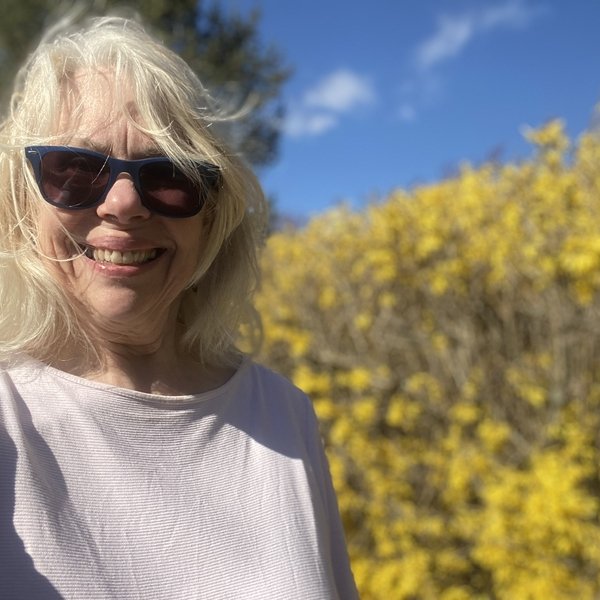
Maryann
Verified teacher profile
- Hourly rate $23
- Response Time 4h
- Number of students 16
Learn from Maryann, Actress, Playwright, Film, Instructor, Theatre Arts, Shakespearean Scholar, Education through Drama, Stage History
-
- Allentown
- webcam
Super Prof
Maryann is one of our best tutors Acting. They have a high-quality profile, verified qualifications, a quick response time, and great reviews from students!
About the lesson
MaryAnn teaches dramatic art, speech, performance arts, and method acting.
Imagine traditional and virtual classrooms where all students listen attentively, perform at their highest levels and always stay focused on the activities. In traditional and virtual language classrooms for elementary through college level, theatre arts integration reaches the inner voice of the students and carries forward their abilities to relate to curriculum and lessons. Teachers can manipulate the role of actor, director, set designer, producer, performer, script writer,
and costume designer and become these roles or teach students to act in these functions to enhance student voice or the ability to express the inner self with self-efficacy in a educational setting.
LISTENING begins with concentration that is a theatrical skill. Students listen to teachers who seem to be in control and who know the material well. The key lies in the truth that all teachers function as theatrical designers in roles who perform before their students. Applications of theatre art such as methods of acting, directorial applications, reader’s theatre, staging plays and writing plays through teacher initiated or student created videos, powerpoints, chats, online conferences such as video conferences, and narrated
power points mixed with and included in assignments, activities,
and requirements delight students and help them learn to
succeed even if they have never had an online class. In
addition, a study of past heroes such as Katharine Hepburn
leads educators to design new curriculum strategies for
educational paradigms. Hepburn’s legacy, a devotion to
theatre art as a way of life, offers a captivating and
transcending vision for our students. Ultimately, theatre arts in the language alternative setting
improves students’ abilities to find their own voices.
PERFORMING enhances classroom learning at all levels. To engage students perform or create performers. The first method to use is the design of a framework entitled the Theatre Arts Integration Framework, designed to strengthen the teacher’s performance and directorial functions. My students initiate their own ideas through my use of theatre arts curriculum based plans that enhance learning and encourage students to think in terms of acting, directing, scenic and costume design, script writing, video and producing. Ultimately, students learn to perform in order to find their voices in traditional and virtual educational settings. Voice means that the inner soul of the students radiates onto the written page in language or literature classes. The ways students perform are so vast that teachers will be astonished at the students’ abilities. For example, a young literature student who writes plays for language settings can achieve excellence in a shorter time than if the student writes in a workbook.
STAYING FOCUSED on the lesson in all levels of educational settings is amazingly easy with theatre arts integration. To begin a lesson plan, the teacher uses acting, methods such as becoming inside the mind of the students or characters who will act out the ideas that the teacher envisions. Next, the teacher fits such paradigms as author
impersonation into a rubric to implement student activities. Be
current and use techniques that are fresh and strong in
classrooms and that mirror current films. For example,
elementary teachers direct, act, and perform as well as
produce theatrically designed classes to teach respect for
other’s points of view or inner voice. Children especially need
respect and space to create for all subjects. For instance in the
elementary language classroom teachers may create a day for pretending to be directors of movies. The children will write, direct, and perform their scripts to show their inner voices. The project can take up to six months and can allow teachers focus and excite students.
A function of dramatic technique involves the minds and bodies
and allows the students to think while they find new ways of self
expression. A student group might focus on a time period such
as Elizabethan England for a design theatrical period to learn to
write, speak, and perform with classmates.
The broader view of theatre arts integration is especially important when we view theory into practice. For example, “Piaget’s felt need” utilized by Gwen Bredendieck Fischer in her article entitled “Developing Students’ Adaptive Learning Skills (Fischer, 1999). Fischer
states the following: “…Students for whom adaptation means passing the upcoming test (rather than understanding the concepts) are likely merely to memorize words and definitions. When teachers structure courses, assignments, lectures, activities, and tests, the question we
should ask ourselves is how to help students who do have the
potential to think abstractly to construct the learning situation as an opportunity to learn concepts that might help them understand events in the world. Within this framework, the role of the teacher
becomes one of providing disequilibrating circumstances--ones
that require students to adapt by assimilating abstract concepts as more than just representations, or words to be memorized. Thus, understanding teaching/learning as adaptation and construction of
meaning reminds us that our role is not to move (motivate) our
students, but rather to create what Piaget calls "felt need."… When we provoke them we can also provide support, by building assignments on what they already know how to do and by encouraging them to assimilate and accommodate to more abstract schemes.”
For example, history in the language classroom is a part of theatre arts integration and helps students learn all types of literature. Historical aspects of theatre lead teachers to new ways of classroom management and ways of bringing history into active learning activities. Characters mirror stage history of a century. Writing students can transform into stage historians; the possibilities for curriculum designs flourish within combination of theatre, society, actor, and audience. Theatre forms a culture. Plato determined that the spiritual exists in art and Aristotle taught art as imitation. Socratic innovation method of “know thyself” in journal discovery to promote fine art as a way of knowing inner knowledge is transcendent and spiritual. Pairing dramatic art and literature in writing curriculums based on film study offers aesthetic dimension to education.
A vital theatre/film industry reflects changes in the multicultural society it serves as do the performers. Katharine Hepburn acted as a female lead in most of her performances with the
portrayal of a female being who affected audiences. Theatre
as art form surpasses all other forms due to the nature and the
scope of the effort that includes setting, language,
characterization, mood, theme, and tone. The work of art of
theatre or film brings to life a human moment. Preserved
through our new technology, thankfully, we have films with
Katharine Hepburn that date back as early as the 1930’s. We
have preserved in the archives of theatrical libraries research
efforts to preserve theatre and the marvelous historical
significance of all performances of merit.
Writers select a certain syntax to represent voice.
Essentially, we are developing writing ability through finding
personal writer voice meaning students’ styles, contents, and
formats. Student writers may use the live chat to act out a
play or any work of literature with the use of reader’s theatre.
They can initiate the theatrical atmosphere by selecting a
director for the chat, actors, script and performance date all of
which may become a finished paper to present for a graded
assignment. They might also create a video and critique their
performances. Voice creates thesis. Hearing their own voices
through theatrical means in virtual classrooms creates a
doorway to learning to write. Use third person with a
combination of elements to write a strong argumentative
position based thesis: three elements of language such as
diction, voice, syntax, paired with an active verb to show
analysis, an element of literary skill such as fiction, drama,
poetry, and add a primary source or author.
According to Deconstruction Theory, language is
metaphor. “Deconstruction assumes that since the word that
signifies an object is separate from that object, the word stands
for the object in a metaphorical way, and so all language is
metaphorical “ (Bogarad and Schmidt, 2002, p. 1353).
Additionally, Reader Response Theory is the understanding that
literary texts “must be understood rhetorically…for the effect
they have on an audience…The emphasis is on understanding
the text as a site where readers may produce
meaning….Therefore, interpretation of a work is based on the
reader’s subjective response to it”(Bogarad and Schmidt, 2002,
p. 1357).
Another literary theory, New Historicism supports “reading a
literary work through its historical and social connect…The new historicist seeks to reconnect the text with the complexity of lived experience during its own time…The new historicist considers
popular entertainment in relation to literary text equally
important as representations of social reality” (Bogarad and Schmidt, 2002. p. 1363).
The emphasis on journaling, group activity, electronic
portfolio, and electronic learning via theatre arts in writing classes are listed in current literary theories as new techniques for teaching writing. Mary Jo Potts suggests that “students who read widely and well tend to develop greater personal style and power as writers from their
reading models…their writing skills rarely evolve without guidance and encouragement.” Her theories center upon helping students become effective writers through articulated departmental expectations, varying assignments with journals, teaching writing process,
encourage developing style, and holistic scoring.
Furthermore, the Romantic Planning Framework
designed by Kieran Egan (Kane, 1999), New Historicism, Reader Response Theory, Process Theory, Deconstructionism, Integrated Curriculum and Thematic Curriculum transform the virtual classroom situation and make the students relax so they could participate. “Some learners feel less
threatened, which in turn lowers the affective filter or mental
barrier that is ‘caused by low motivation, high student anxiety, low student self-esteem’ (
Krashen, 1989, p. 10).
Based on references to fine art either through film, live
theatrical performance, memories of past visits to theatres or
other forms of theatre art such as broadway play encourages
students to learn. Journaling, writing process theory, electronic
portfolio and team activities as well as methodology through
the theatre art improves performances of students.
Curriculum Models
Integrated and/or Thematic Curriculum
According to David Sorbel (1999), “integrated curriculum
strives to contextualize learning, to encourage children to see the connections between home life and school learning…to place the notion of authentic curriculum within the current context of holistic education…{which} recognizes the spiritual interests and pursuits of the child as a valid component” (Kane, 1999, p. 287-288). Therefore,
integrated or thematic approach to curriculum advocates connections between curriculum and culture.
Read required literary works and establish means of
understanding historical background, author biography, and
alternative means of creativity of the work such as film or
documentary on the writer. Film is a powerful tool in the
understanding of literature. Students create their own
primary sources such as interviews, reader's theatre on a chat
type of group setting where we act out a virtual scene form a
play as part of a team effort and experience to write about, a
fiction or poetic work create by class members as an original
primary document. The following list presents discussion teams
and group collaborative efforts:
1. Creating a class glossary of dramatic terms that apply to
literature
2. Creating a class list of quotations from famous actors,
directors, literary figures as your discussions in a group of one
or more
3. Creating links to web sites on literature and evaluating those
links based on stage history
4. Haiku Book based on reader’s theatre performances
5. Reader's Theatre via Chat Forum
6. Interview with family or co-worker about reaction to films
7. Designing a website
8. Designing a power point
9. Creating a power point for blackboard site that can be
shared with the class
10. Creating a document that can be shared with others in a
small group
JOURNALING
Self discovery is also a part of college learning and the art
of theatre. A method of acting called the Stanislavsky Method
offers the student insight into being or becoming the character.
Students can write a stream of consciousness journal similar to
a theatre production booklet for an actor. They can learn that
a class is actually a production and the daily activities can
mirror the practice needed for a play performance.
Alternatively, a study of the inner consciousness of a student in
a private journal is an alternative to show students how to write
as well as a public discussion journal. A journal is a reflective
writing that can be in sentence, poetry, or song lyrics that the
student writes or even electronic in nature like a website or
CD. Literary study can also engage students to write on issues
that might be for Professor but not for other students. Journal
entries often help writers create papers. Students are
encouraged post paper drafts, develop papers, find research
database articles or books, and provide responses for points
toward class participation grade. Relate required readings to
paper topics, current events, or life events as well.
Sample student journal entry:
“…There is nothing more exhilarating than getting totally
engulfed in a … a good movie. You almost feel like you are
there, feeling what the main character is experiencing…. It
seems as if all of the most exciting books eventually get turned
into a movie, and it almost seems as if it is every author’s goal
to get their book turned into a movie. For example, look at all
of the books that were written by Stephen King, he even takes
it one step further by appearing in his movies. Just about all of
the books that he has written ended up on the big screen.”
The Romantic Planning Framework
First, the instructor identifies transcendent qualities. Next,
s/he organizes the topic into narrative structure, then composes the body of the lesson and humanizes the content and pursues the details. Finally, the instructor concludes the topic and evaluates
the content to see if s/he has engaged the students’
imaginations (Kane, 1999, p. 311).
Literary Theories
New Historicism
New Historicism “represents a variant of sociological
criticism. By reading a literary work through its historical and social context, the new historicist seeks to reconnect the
text with the complexity of lived experience during its own
time”
(Bogarad and Schmidt, 2002, p. 1363). The participants
design
projects as well as class discussions, research papers and
group activities based on their
own views of creators of a new history about their own cultures
based on theatre art.
Reader Response Theory
Reader response theory “emphasizes understanding the
text as a site where readers
may produce meaning” (Bogarad and Schmidt, 2002, p. 1357).
Deconstructionism
Deconstructionism determines that “ language is
metaphorical” (Bogarad and
Schmidt, 2002, p. 1353). Theatre art in the distance setting
bridges offers the instructor
exciting motivational opportunities such as reader’s theatre
over a chat or video.
Process Theory
Invention, drafting, revising, editing, discussions,
conferences, peer group
interactions occurred during the drafting and revising stages of
the writing of an essay
or research paper (Potts 1998, p.4). Musicality enhanced the
ability of students to
understand contextual clues.
Social Construction Theory
Social construction theory promoted informal learning as
more effective. Individual
growth was nurtured by social interaction. Learning occurs
when what is learned is
perceived to be relevant or necessary to the learner. New
knowledge is acquired on the
basis of what is known already. Knowledge is not static but
dynamic (Potts, 1998, p.
7).
Methodology Examples Based on Theatre Arts
1. Team members create a video of their essays
related to theatricality and the meaning of the performance in
their own life situations.
2. Students create hyperlinks and review selections
for papers and discussions. Many students design websites or
web pages or essays based on web site review.
3. Design hypertext which is a combination of essay
and links as well as documents from the internet to detail a
presentation. Submit hypertext projects via a student
generated film with director, actor, and story board.
4. Establish a team of student friends at the early
stages of the class; work in teams of two or more to write and
present papers via alternative means like chat presentations,
book poetry or drama talks with analysis of historical,
biographical, and language analysis of literary works or group
papers that give all students the same points for discussions
drafts and final papers. Students enjoy cut and paste essay
technique during chat sessions that can be copied and pasted
for the entire class to view.
5. Power point presentations are possible and can
be uploaded to virtual classrooms to satisfy essay. Incorporate
the essay into the presentation. New technologies like flash and
power point provide interesting technology to fit the essay
structure and incorporate hypertext and hyperlinks as well.
6. Combine technologies and add video that can be
mailed to Professor. In groups of one or more on essays to
present creations that animate and analyze.
7. Interview, provide a real time reader’s theatre
for an early childhood class or elderly care unit where you read
literature and gain feedback, or create your own unique
interview or field study for project. Field study can provide a
link to essay structure and presentation.
8. Use stream of consciousness journaling as a set
of papers. Journal with hypertext to present logical study of
literary works and request presentations that show ability to
journal and to document journal experience for alternative
paper essays that can be submitted to publishers. Journaling
and internet are powerful tools for English students.
9. Coffee House presentations can be done via the
internet through chat or AOL instant messenger for class
presentations that show group dynamics and understanding of
the process of writing.
Furthermore, theatre arts combined in filmography study
change the cultural view of the emerging writer in English
classes and excites the imagination to produce student virtual
writers who use hyperlinks, hypertext, and a combination of
strategies to succeed. Educational frameworks enhance virtual
platforms and focus the student on the use of the past to create
a new history via reader response in literature computer based
virtual classes.
The following passage from the conclusion of my master’s
thesis based on the study of stage history acts as a sample of
the prose generated by use of fine art as a basis for virtual
writing classes:
As a result of this investigative study, I have found that the role
of Rosalind demands much from the actress. Rosalind has
more sides and more puns than any other of Shakespeare’s
women. The role gives the actress a chance to achieve a
modulation between the brassiness needed to enjoy being in
disguise and the tenderness needed to portray love. Evans
gave the most successful performance to Rosalind in the
twentieth century. She discovered moments of sweetness that
stage historians praise as moments which will never be
forgotten. She transformed into Rosalind and portrayed her as
the delightful comic heroine who captivates and entertains in
the Forest of Arden (DiEdwardo).
Students will gain self knowledge as they learn to apply
theatre arts applications such as acting, directing, and
performing in the virtual setting. Grade achievement can be
enhanced through theatricality in all aspects of curriculum
design with author impersonation, reader’s theatre chats,
adding theatrical motives of forming text, hypertext, and
hypermedia to consider how we as readers act, interact, and
think visually with new and evolving forms and structures.
Works Cited
Berman, Jeffrey. (1994) Berman Diaries to an English
Professor: Pain and Growth in the Classroom. Massachusetts:
University of Massachusetts Press.
Bogarad, C.R. and Schmidt, J.Z. (2002) Legacies. New York:
Harcour.
Bredendieck Fischer, Gwen. (1999) Developing Students’
Adaptive Learning Skills. College Teaching. Vol.47, Issue 3.
DiEdwardo, MaryAnn Pasda. (2004) Music Transforms the
College English Classroom:
A Case Study. Dissertation. California Coast University,
Santa Ana, CA,
DiEdwardo, Maryann Pasda. (2005) “Pairing Music and Linguistic
Intelligences.” Kappa Delta Pi. The Record. Vol. 41, No. 3.
DiEdwardo Pasda, MaryAnn. (1980) Rosalind in the Twentieth
Century; An Analysis of
Performances by Edith Evans, Katherine Hepburn and
Vanessa Redgrave. Thesis.
Bethlehem: ehigh University.
Kane, Jeffrey. (1999) Education, Information, and
Transformation, Essays on Learning
and Thinking. New Jersey: Prentice Hall.
Kramer, Daniel J. (2001) ADFL Bulletin. “A Blueprint for
Teaching Foreign Languages
And Cultures through Music in the Classroom and on
the Web.”
Krashen, Stephen D. (1989) Language Acquisition and
Language Education. 2nd ed.
Language Teaching Methodology. New York: Prentice.
Potts, Mary Jo. (1998) Teacher’s Guide – AP English Language
and Composition. New
York: College Entrance Examination Board and
Educational Testing Service.
subjects
- Acting
- Improvisational theater
- Musical Theater
-
+2
Scenography
Playwriting
languages
- French
- English
- Italian
levels
- All Levels
About Maryann
MaryAnn Pasda DiEdwardo was born in Allentown, Pennsylvania on September 19, 1953. M. Pasda DiEdwardo attended schools in Bethlehem, Pennsylvania for her primary and secondary education. From 1960 to 1971, Maryann attended private schools to study dramatic art, visual art, and dance. In 1968, she was awarded a scholarship to the Fine Arts Program to study dramatics and art at a summer program for high school students at Westminster College. In 1971, she was elected to Outstanding High School students of America. Maryann attended the Pennsylvania State University, State College, Pennsylvania, from 1971 to 1975. A Summa Cum Laude graduate and winner of the Carnegie Scholarship, she was Graduation Marshall for College of Arts and Architecture, Pennsylvania State University, President of Mortar Board, Phi Beta Kappa, Phi Kappa Phi. While at Penn State, Maryann appeared in major theatrical productions. Her credits include the role of Amelia in The House of Bernarda Alba, the Reporter from Paris in Breasts of Tiresias, the Mermaid in Ofoti, and understudy for Joan in St. Joan.
Subsequently, Maryann received a scholarship for one year of study at Lehigh University and eventually earned her Master of Arts in English from Lehigh University in 1980 with an emphasis on Shakespearean Studies. A member of Sigma Tau Delta and instructor in 1976, she also portrayed Opheila in a production of Hamlet presented for the American Theatre Association in Annapolis, Maryland that same year.
Recommendations
Recommendations come from relatives, friends and acquaintances of the teacher
While I was still employed as an English Department Assistant Chair and in charge of hiring adjunct teachers for First-year English classes, Maryann was always the first person I employed. Maryann brings to the classroom a wealth of experience and special interests that enrich her teaching, and her students love the excitement this cross-pollination creates. Even more impressive is Maryann's ability to respond to individual learning patterns among her students and to tailor her approach for each one. She is warm-hearted and always generous with her time. And her students will learn a great deal from knowing her --- much more than just a mastery of English composition.
She is encouraging and positive. It is an absolute honour and pleasure to learn from her.
I have known Maryann for 30 years during the time I was homeschooling our five children. She has been helpful to each one throughout their education and is a patient, kind and caring instructor who gives great attention to detail
I strongly recommend Maryann. As her student, she is a very responsible teacher. She made a lot of good suggestions and corrections on my paper work and thesis. She helped me to achieve the writing skill. She is always very kind. She is very good at communication with students. She is a great author and writer too. I am always love her writings.
Amazing teacher, writer, and scholar. Would highly recommend her to teach, tutor, or hire as an editor.
Dear all,
This, to me, would seem to go without speaking.
Dr. Maryann DiEdwardo is a scholar, a researcher and a teacher of superb quality.
When you are fortunate enough to be in her presence in an academic community or other, you are facing and interacting with one who gives, after thorough assessment of her students, her complete attention.
Thus, she is able to bring to all her students well honed plans for their success a process in which all are partners. For, one's progress is hers also as she learns even as she imparts. This is done compassionately and using the most up to date modalities, plus the knowledge bases available virtually and person to person, by one who is well written, judicious, firm and gentle.
I wholeheartedly commend Dr. Maryann DiEdwardo, a academic of brilliance, to your program and its service.
With best regards,
Dr. Juliet Emanuel,
718 783 5190 (residence),
212 2201406 (BMCC/CUNY).Maryann is an incredibly kind and generous person. She passionate about learning and teaching in my 30 years of knowing her. She is innovative and consistent. You couldn’t ask for a more dedicated educator.
I have known maryann over 60 years. She devotes all Her time and energy to her students. Maryann knows each student and what they require and how to teach them.
Maryann gives each student what they need and helps them grow I highly recommend Maryann as a teacher. Patricia Pasda BFAMFAView more recommendations
Rates
packages
- 5h: $115
- 10h: $230
webcam
- $23/h
Other tutors in Acting

ISABELLE
Paris 16e, France
Graduated from the Neighborhood Playhouse School of Theater in New York, USA, the Sanford Meisner School, I offer courses,...
- $55/h
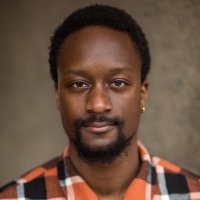
Axel
London, United Kingdom
We can work together on either purely Drama School Entrance (see I.) or Acting in general (see II.) I. DRAMA SCHOOL...
- $43/h
- 1st lesson free!
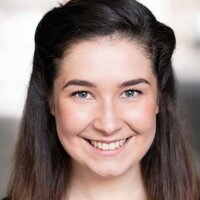
Jessica
London, United Kingdom
My key focus is to give my students the necessary tools to be able to explore a text and delve into character. Includes...
- $55/h
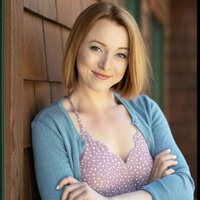
Ashley
New York
Whether you're working on new material, dusting off an old monologue, auditioning for college, or going in for a...
- $50/h

Beckle Life and Music Coaching
Chandler
Beckle Life and Music Coaching is the place to fill your creative spaces for Acting Voice and Piano Classes! We teach ages...
- $40/h
- 1st lesson free!
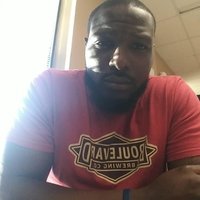
Christopher
McAllen
My Teaching approach is hands on in terms of showing exactly what you need to do in order to gain employment in the...
- $45/h

Anastasiia
Los Angeles
I give private consultations to actors of ALL levels with any amount of experience, since it is never too late to learn. The...
- $40/h
- 1st lesson free!
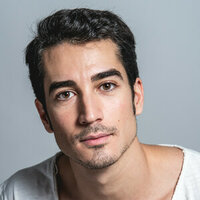
GUSTAVO
Queens
Emotions and relationships in life and theater. This sentence summarizes my way of understanding and teaching acting. From...
- $30/h
- 1st lesson free!

Christopher Pat
New York
I approach each acting lesson with the method appropriate for the actor's experience, ability, type, age and other...
- $20/h
- 1st lesson free!

Tara
Montgomery
I enjoy teaching one on one. This allows me to bring out your best skills and talent, while building your confidence! With...
- $65/h
- 1st lesson free!
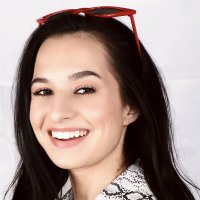
Hannah
Los Angeles
I encourage my students to approach every scene with questions and imagination. What does the character want? How are they...
- $75/h
- 1st lesson free!
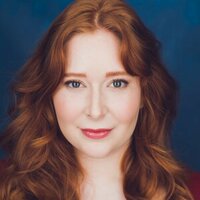
Shannon
New York
Hello there! My name is Shannon Haskell, and I am a professional actor based in New York City. During my 15+ years of...
- $40/h
- 1st lesson free!
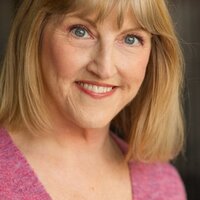
Kate
Los Angeles
I approach acting utilizing different acting techniques, plus lessons learned in my 40 years as an actor. I love teaching...
- $30/h
- 1st lesson free!
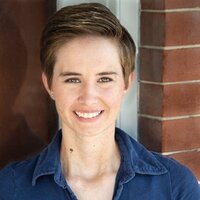
Amy
Dover
My teaching style is very interactive and I encourage everyone to participate. Theatre can be trying at times with people...
- $23/h
- 1st lesson free!

Logan
Chicago
I love Uda Hagen. Her questions for an actor, not only help actors understand their characters, it helps playwrights and...
- $20/h
- 1st lesson free!
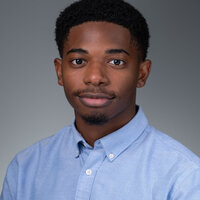
Brendan
Chicago
I base my classes on personal alignment with the craft. The curriculum is individualized and based on the personal goals of...
- $25/h
- 1st lesson free!
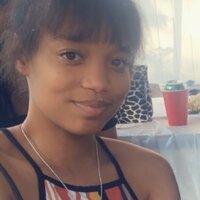
Brittany
Dundalk
I have a professional but fun approach to my teaching and I encourage my students to give 110% into everything that they do,...
- $22/h
- 1st lesson free!
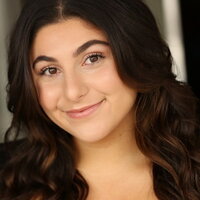
Yasmine
Los Angeles
My teaching method consists of three questions: 1. Why does this subject matter to you? 2. Why and how does this subject...
- $30/h
- 1st lesson free!
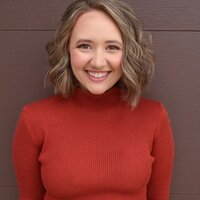
Kiara
Frankfort
Within my lessons, you will have the opportunity to learn about the best professional acting skills/tips, character...
- $40/h
- 1st lesson free!
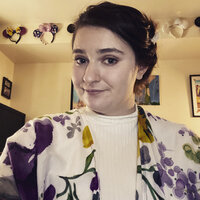
Jessica
Bethlehem
My method is based on case. Everyone is at a different level. Assessing where a student is and creating a plan is the best...
- $25/h
- 1st lesson free!



